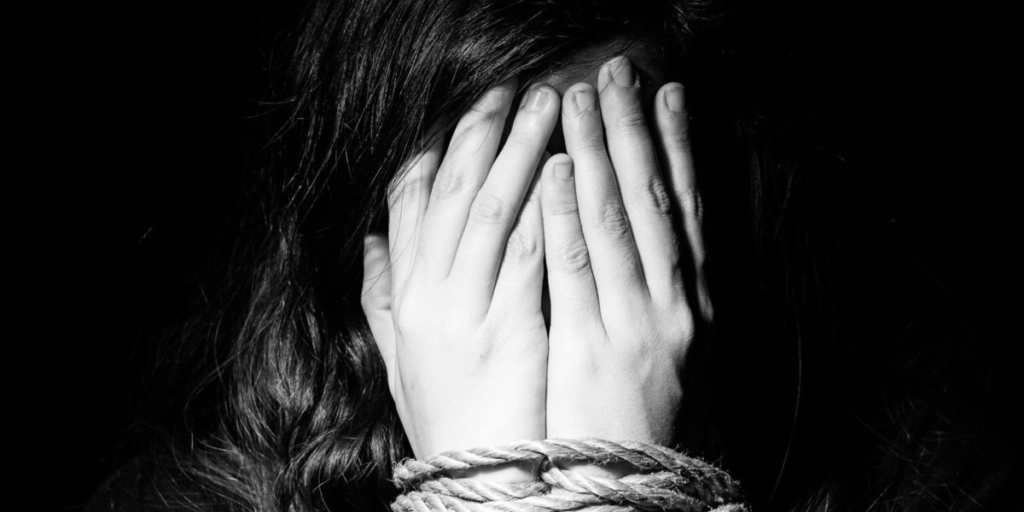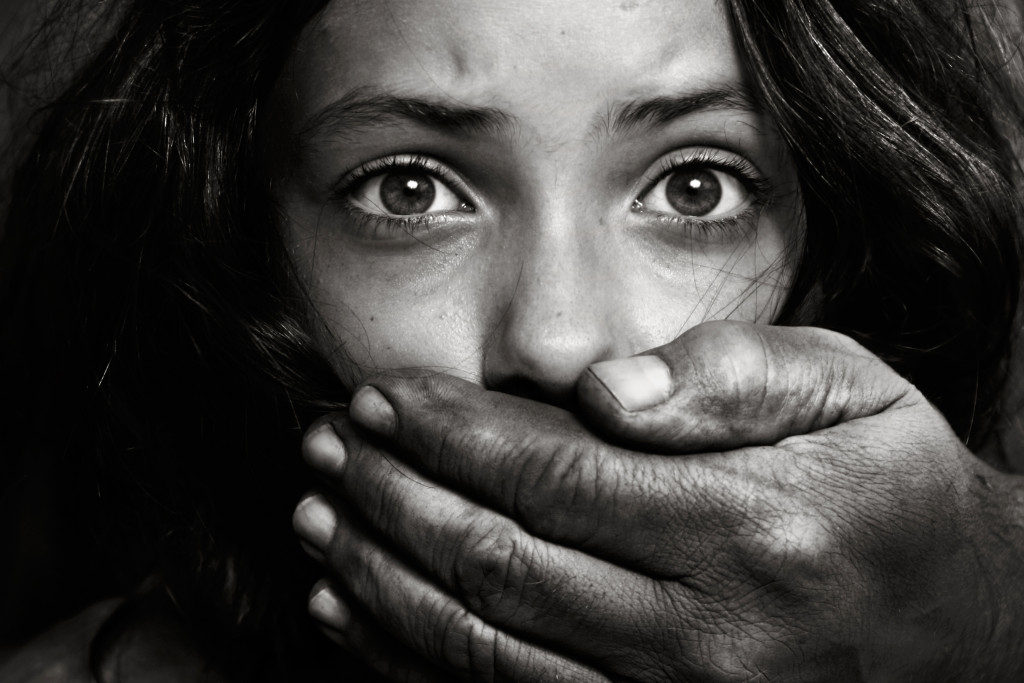Today is Human Trafficking Awareness Day in Alabama

On Wednesday, the Alabama Human Trafficking Task Force is sponsoring Alabama Human Trafficking Awareness Day. The ninth annual Alabama Human Trafficking Awareness Day aligns with the national observation. The Alabama Human Trafficking Summit will be held this year on January 26-27, 2023. This two-day training will be an in-person event at the Renaissance Hotel in Montgomery. The Alabama Human Trafficking task force was established in 2014 by the Alabama state legislature. The mission of the task force is to combat all aspects of human trafficking, including sex trafficking and labor trafficking. The task force pursues a comprehensive response to crimes of human trafficking, coordinates strategies to provide necessary services for victims of human trafficking, focuses prevention efforts to end the demand for human trafficking, and creates awareness through education and community initiatives. Pat McCay Chairs the Alabama Human Trafficking Task Force. Human trafficking is the second largest criminal activity in the world (behind only illegal drugs) and the fastest growing. Even though overall awareness in the United States has increased, human trafficking continues to go underreported due to its nature of isolation, the misconception of the definition of human trafficking, and the lack of awareness of its signs and indicators. Human trafficking occurs when an adult or child is recruited, harbored, obtained, or exported through force, fraud, or coercion for the purposes of sexual exploitation, forced labor, involuntary servitude, debt bondage, and other methods of slavery. Since 2019, municipalities across the state have declared themselves Trafficking Free Zones as defined by the U.S. Institute Against Human Trafficking. In order to become a Trafficking Free Zone, cities commit to training their entire staff, law enforcement and first responders in human trafficking awareness. They commit to a Zero-Tolerance HR Policy regarding soliciting commercial sex, requiring immediate termination; they are asked to educate schools and the community through educational events and awareness and prevention programs. Alabama Trafficking Free Zones now includes the cities of Alexander City, Bessemer, Birmingham, Camp Hill, Center Point, Cullman, Dadeville, Gardendale, Homewood, Hoover, Irondale, Lakeview, Mountain Brook, Northport, Opelika, Oxford, Pinson, Rainbow City, Semmes, South Vinemont, Trussville, and Vestavia Hills. Several organizations and businesses in Alabama have also taken steps to become Trafficking Free Zones, including BH Photography, the Birmingham City Council, Coastal Alabama Community College, the District Attorney’s Office 7th Judicial Circuit of Alabama, Fowler-Davis, LLC, the Jefferson County City Council, the Jefferson County Mayor’s Association, Trafficking Hope, The World Games 2022 Birmingham and the UAB School of Medicine. Municipalities that declared or will be declaring January 2023 as Human Trafficking Awareness Month via proclamations are Albertville, Ashland, Birmingham, Brent, Brundidge, Center Point, Chelsea, Collinsville, Cullman, Daleville, Dora, Elba, Enterprise, Fairhope, Fort Deposit, Fort Payne, Geraldine, Hamilton, Helena, Holly Pond, Killen, Kimberly, Madison, Magnolia Springs, Montevallo, Montgomery, Mountain Brook, Northport, Phenix City, Ragland, Rainbow City, Satsuma, Semmes, Trussville, Tuscaloosa, and Vestavia Hills. The task force meets quarterly. All meetings are open to the public. Anyone who has information about human trafficking should report that information to the National Human Trafficking Hotline toll-free at 1-888-373-7888, which is available 24 hours a day, seven days a week. To connect with the author of this story, or to comment, email brandonmreporter@gmail.com.
Alabama mayors join Jr League Birmingham to fight human trafficking

Mayors all over Alabama are stepping up to fight human trafficking. Julia Meyers, Junior League Birmingham (JLB) chairwoman of the Anti-human Trafficking Committee, has been working tirelessly with the state legislative Human Trafficking Task Force in order to get regional government officials to proclaim January human trafficking awareness month. Mayors of Mountain Brook, Homewood, Vestavia Hills, and Hoover have all signed proclamations. “I reached out to 18 mayors in Jefferson County and immediately Over the Mountain mayors responded,” Meyers told the Over the Mountain Journal. “That, for me, was very exciting. In the areas where we think this problem isn’t going on, they are actually taking action.” “I’d like our city to know that Vestavia Hills Police Department actively participates in a task force with some of my old colleagues from my FBI days in addressing this issue,” said Vestavia Hills mayor, Ashley Curry. “We’re doing what we can and just ask that everybody look out for certain signs … if you see something that you don’t think is right, give us a call.” The city of Cullman, Ala. has also stepped up to the task with Mayor Woody Jacobs not only proclaiming January as human trafficking awareness month, but establishing January 11 as a Human Trafficking Awareness Day. “Human trafficking is a problem everywhere, even here in our community. I greatly respect the work that the Task Force has done and continues to do to help prevent this terrible crime in Cullman and Cullman County.” Newly elected Birmingham Mayor Randall Woodfin also joined Meyers in declaring January as human trafficking awareness month, as evidenced in this tweet by the Junior League of Birmingham: Junior League of Birmingham(JLB) President, Katy Roe Eldridge, and JLB Anti-Human Trafficking Chair, Julia Meyers, join Mayor Randall Woodfin as he and City Council proclaim January as “Human Trafficking Awareness Month”. Thank you for supporting JLB in this effort! pic.twitter.com/bBRq1GvkG2 — Jr. League of Bham (@JLBirmingham) January 10, 2018 “Junior League of Birmingham(JLB) President, Katy Roe Eldridge, and JLB Anti-Human Trafficking Chair, Julia Meyers, join Mayor Randall Woodfin as he and City Council proclaim January as “Human Trafficking Awareness Month”. Thank you for supporting JLB in this effort!” Birmingham is an important participant in human trafficking awareness month because of it’s closeness to the issue. Interstate I-20 between Atlanta and Birmingham is known as the Sex Trafficking Superhighway. “It cuts right there through downtown Birmingham, and what we’re finding, unfortunately with the interstate system that you and I use to get from Birmingham to Montgomery — is that people are using it to bring in girls, for example, for a short period of time. Buyers are available, and then they leave,” said David Pinkleton, fundraising chair for the Alabama Human Trafficking Task Force. Other Alabama officials have responded to the Task Force’s urges. Sen. Cam Ward introduced SB179 on Tuesday to increase the criminal punishment for those found guilty of obstruction or enforcement of current human trafficking laws. Gov. Kay Ivey is also expected to sign a proclamation later this month in observance of National Human Trafficking Awareness Month. In addition to the proclamations, Meyers is promoting the Rescue Innocence Project Gala, a fundraiser for the National Center on Sexual Exploitation. The event features guest speaker Ed Smart whose daughter was abducted in 2002 and miraculously returned to her family after nine grueling months. Smart and his daughter Elizabeth are now active voices in the fight against sexual exploitation. Although Alabama has it’s own human trafficking task force, new laws to punish those who would sexually exploit children, and lawmakers who are willing to step up and make a difference; Alabama only scores an 83.5 on the Shared Hope International report card. According to the report; “A juvenile sex trafficking victim will be identified as dependent or as a child in need of supervision rather than as delinquent, but Alabama law does not provide a statutory avenue to specialized services.” Under the Safe Harbor law, which passed in Alabama in 2016, minors who are arrested for prostitution are not sent to juvenile detention centers or convicted of prostitution. But therein lies the problem; the state of Alabama has no where else to put them. Minors are currently sent back into the situations that sent them there in the first place, or turned over to DHR. “They were denied education and have no skills. They don’t even have family to turn to.” Meyers told the Over the Mountain Journal. This is a problem Meyers and the National Center on Sexual Exploitation hopes to solve. By providing training, specialized staff, and intake facilities for minors who are victims of human trafficking; Alabama would finally have somewhere to send victims in desperate need of care. Funds collected from the Gala will go towards providing these facilities in Alabama and states around the nation.
Alabama House passes anti-human trafficking bill

The Alabama House has approved a bill to crack down on predators seeking to purchase sex via human trafficking, what many consider the last existing form of slavery in the United States. The bill – HB 433, dubbed the “Safe Harbor Act” – passed the House on a unanimous 103-0 vote on Thursday. Rep. Jack Williams, who chairs the Legislature’s bipartisan Alabama Human Trafficking Task Force formed in 2014, sponsored the bill. The legislation is designed to treat minors caught up in the sex trade as victims, rather than willful law breaker, as it often the case now. HB 433 provides that any minor found to have committed prostitution under state law not be transferred to or tried in adult court, and that a list of services including counseling, substance abuse treatment, legal representation, and medical treatment be made available to them. The bill also requires Alabama businesses operating an “escort business of companionship” to registered with the Secretary of State, and provides for penalties for violations of the rules therein. A similar bill, SB 368 by Democrat Sen. Vivian Figures, was also introduced this Session, but has not gotten a hearing in the Senate Judiciary Committee. Advocates for sex trafficking victims have estimated the trade is the second-largest criminal industry in the U.S., topped only by illegal drugs.
House passes “safe harbor” bill for human trafficking victims

Alabama may soon offer safe harbor provisions for children who have been victims of human trafficking. Under House Bill 433, children who have been victims of sexual exploitation cannot be convicted of prostitution and must be tried in the juvenile court system. Adults convicted of promoting prostitution will incur a $500 fine on top of any restitution they might be ordered to pay. Rep. Jack Williams sponsored the legislation, which passed the House unanimously on Tuesday. He also chairs the Alabama Human Trafficking Task Force, a bipartisan group formed in 2014 to fight the state’s growing problem of human trafficking. According to the task force website, human trafficking cases have been reported in Montgomery County, Birmingham, Fort Payne, Madison County, Huntsville, Albertville, Guntersville, Dothan, and Mobile. With estimated profits as high as $150 billion, human trafficking is the second largest criminal industry in the country. Alabama has had a human trafficking law since 2010, however HB 433 would introduce a new layer of protections for child victims. In addition to keeping children in juvenile court, the bill says child victims will have access to shelter, health care and mental health counseling. Williams said that the goal of HB 433 is to “keep minors charged with prostitution under the authority of DHR and out of the courts, insuring the state treats them as victims not criminals.”

